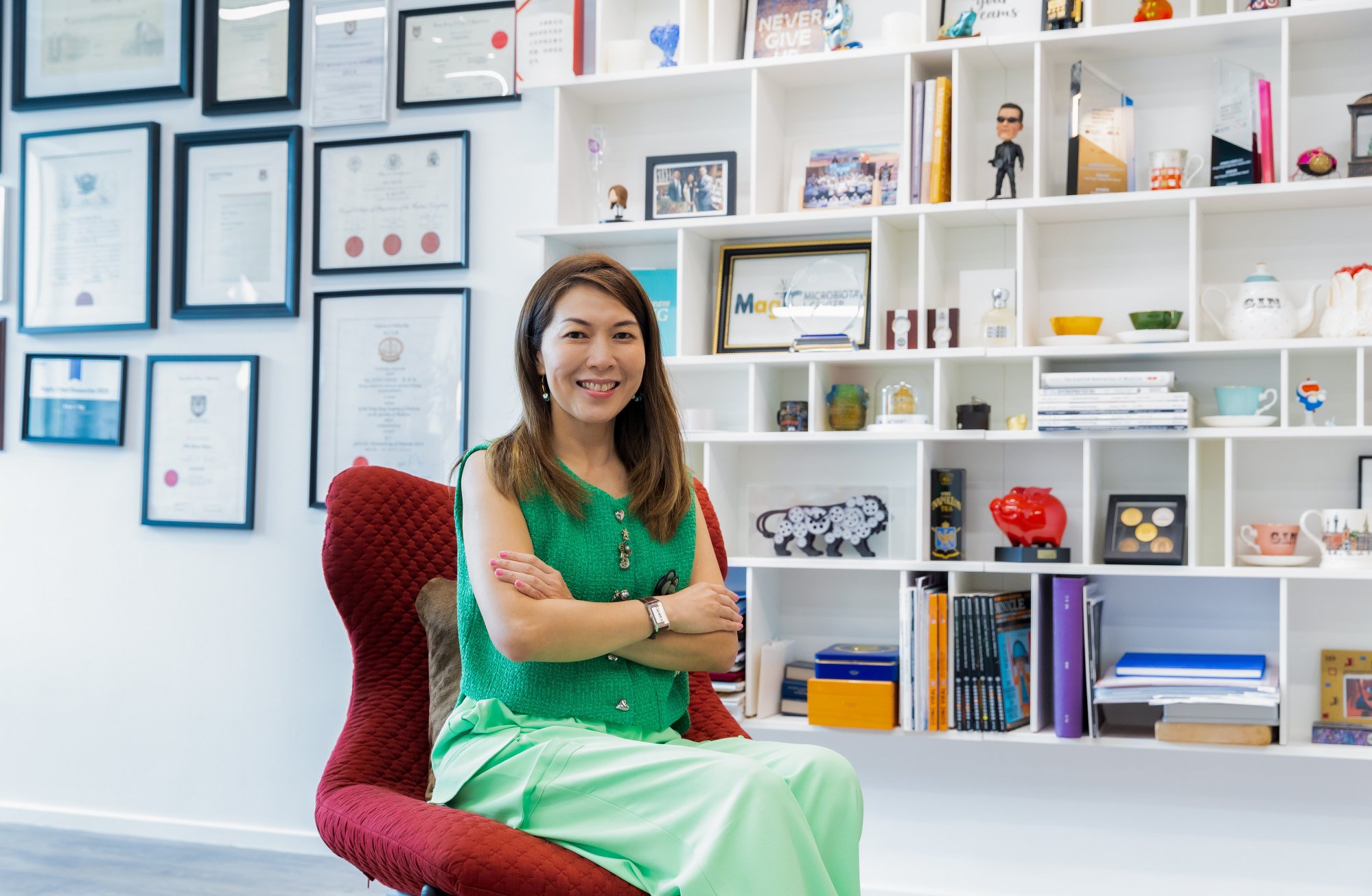
Trust your gut: Hong Kong medical trailblazer discovers treatment for recurring intestinal condition
- Professor Ng Siew-chien is a Spirit of Innovation finalist at this year’s Spirit of Hong Kong Awards, which honours the achievements of remarkable individuals
- Scientist notes 90 per cent success in use of groundbreaking faecal microbiota transplant to treat clostridioides difficile infections
A Hong Kong scientist’s groundbreaking research on a life-threatening gut infection has paved the way for a treatment programme to be made available at public hospitals from this month.
Professor Ng Siew-chien of Chinese University of Hong Kong’s medicine and therapeutics department is the pioneer behind the faecal microbiota transplant (FMT).
The procedure involves transferring gut microbes from a healthy donor to patients with Clostridioides difficile infections (CDI), a recurring gut condition.
“CDI has a 40 per cent mortality rate when left untreated and a high recurrence rate of 70 per cent. However, treatment options were limited back then,” said Ng, who is also the director of Microbiota I-Center.
The disease often occurs when patients take some types of antibiotics or after they have completed the treatment. The elderly and people in hospitals and nursing homes are at greater risk of contracting the condition.
Steroid drug raises risk of heart issues for arthritis patients: Hong Kong study
The Hospital Authority last year reported 3,645 cases of Clostridioides difficile infections, up from 3,106 in 2021 and 2,801 in 2020.
“Using our in-house FMT technology (MOZAIC), however, we’ve achieved a success rate of over 90 per cent, allowing many patients to live happy lives again,” she said.
The academic is a Spirit of Innovation finalist at this year’s Spirit of Hong Kong Awards, an annual event co-organised by the South China Morning Post and property developer Sino Group that honours the achievements of remarkable individuals whose endeavours might otherwise go unnoticed.
The scientist was also recognised for her work last year, when she was awarded the Silver Medal at the 47th International Exhibition of Inventors in Geneva, Switzerland.
Ng said patients who received the treatment recovered in just a few hours.

The transplant is available at public hospitals from this month through a partnership with the Hospital Authority.
“Unlike surgery, this simple procedure involves only implanting healthy bacteria through an endoscopy, making it a convenient and effective treatment option,” she said.
Ng said many patients who had undergone the procedure reported no longer having to endure endless cycles of bacterial infections and diarrhoea.
“They have regained the ability to eat and enjoy meals with their families, allowing them to return to their normal lives,” she said.
Ng said the treatment had also shown promise in tackling other conditions, such as inflammatory bowel disease, irritable bowel syndrome, obesity, graft versus host disease and multi-drug-resistant infections.
The treatment involves extracting beneficial microorganisms from healthy faecal matter and implanting the microorganisms via an endoscopy.
AI tool for brain cancer prognosis created by team led by Hong Kong scientists
According to her research, the procedure helps create a state of balance between fungi, viruses and bacteria in the body and promotes the recovery of a patient’s immune responses and internal microbial stability.
Ng partnered with Professor Francis Chan Ka-leung, the dean of medicine at Chinese University, to establish the Microbiota I-Center in 2019 as part of her efforts to introduce the treatment.
The centre has carried out more than 800 procedures so far and enjoyed a success rate of more than 90 per cent, with no reported cases of complications from recurring gut infection after treatment.
She also led a team of 14 international experts to publish a white paper, with the support of the Asia-Pacific Society of Gastroenterology and the Asia-Pacific Society of Gastrointestinal Endoscopy, that outlined the most effective methods of applying the procedure.

Ng established Asia’s first microbiota transplant and research centre in 2017, with the centre at Chinese University ensuring more patients could be treated. She has also created the continent’s first stool bank to help patients get timely treatment.
“The establishment of a stool bank has significantly improved the treatment process by ensuring quick access to high-quality stool samples,” she said.
“It eliminates the need for rushed searches for healthy donors and allows for more efficient and effective patient care.”
Ng said the intestine was a “second brain” because the microorganisms in the organ released signals that could affect the brain’s functions.
She also pointed to research showing that people with autism could suffer from an imbalance of gut bacteria compared with those who did not have the condition.
“Some studies have found associations between alterations in the gut microbiota and cognitive decline, suggesting that maintaining a healthy gut microbiome may have implications for brain health,” she said.
Hong Kong scientists get rare US approval for trials of constipation drug
Ng and her team are at present working on microbiome treatments for younger patients with autism, as well as some that could help elderly people with certain types of cancer and inflammatory diseases.
“With early diagnosis, treatment can be personalised and administered with the right microbiome pills,” she said.
The scientist has also envisioned the creation of a “Microbiome Noah’s Ark” that could store healthy stool samples from young donors that could be set aside for future treatments.
“We generally look for younger individuals, usually below their 30s, who take good care of themselves by following a healthy diet, maintaining positive habits and staying active with regular exercise,” she said.
‘Young Hongkongers with prediabetes have 88 per cent risk of developing diabetes’
Ng said she was confident her work would be beneficial to patients and their families, as well as contribute to the development of Hong Kong as a leading microbiome biotechnology hub.
She added the Greater Bay Area also offered room for expansion and would ensure access to a bigger donor base and allow more people to benefit from the treatment.
The bay area is Beijing’s drive to link Hong Kong, Macau and nine mainland Chinese cities to create an economic powerhouse.
